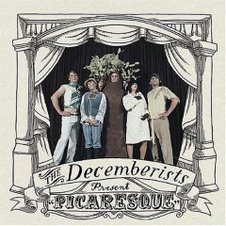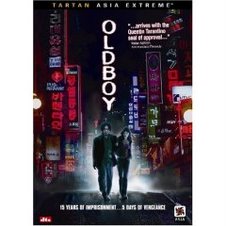Reading through this fascinating thread over at T&S, I learned that some Mormon scholars think that the Gadianton robber passages of the Book of Mormon were influenced by the anti-Masonic feeling in the early 19th century (and transmitted into the Book of Mormon through Joseph's translation). I don't know how comfortable I am with the expansion theory (nor am I convinced it is absolutely necessary to explain away the problems of the BoM) but it brings up a really interesting point. Two things that the Book of Mormon is very clear in condemning are secret societies and polygamy. And yet, in many ways, the church came to embody those two things it had expressly condemned.
It is well-known that Joseph became a Mason and started a Masonic lodge in Nauvoo. It is also clear that the temple ceremony has many Masonic elements. This is why it is jarring to read Helaman 6:22 in this context:
"And it came to pass that they did have their signs, yea, their secret signs, and their secret words; and this that they might distinguish a brother who had entered into the covenant, that whatsoever wickedness his brother should do he should not be injured by his brother, nor by those who did belong to his band, who had taken this covenant."
It seems odd that the church would come to utilize very similar means to draw closer to God, but I suppose it could be argued that Satan merely apes heavenly forms in corrupted ways. Modern polygamy, however, it much harder to reconcile with the text of the Book of Mormon.
The Book of Jacob unequivocally condemns polygamy and also Solomon and David for practicing it:
"Behold, David and Solomon truly had many wives and concubines, which thing was abominable before me, saith the Lord...
"Wherefore, my brethren, hear me, and hearken to the word of the Lord: For there shall not any man among you have save it be one wife; and concubines he shall have none;
"For I, the Lord God, delight in the chastity of women. And whoredoms are an abomination before me; thus saith the Lord of Hosts."
What changed between 1830 (the publication of the Book of Mormon) and 1831 (which, from the very circumspect allusion in the introduction of D&C 132, I take to be the date of Joseph's first plural marriage)? How did Mormonism change so quickly into the very things it condemned in the Book of Mormon?
Subscribe to:
Post Comments (Atom)




7 comments:
We also have the whole "Thou shalt not kill", unless it is genocide in Canaan thing.
Agreed, though, it makes for interesting dynamic. I'm reading In Sacred Lonliness right now, which has given me pleanty of contradictions to mull over.
True, J. The scriptures are filled with problematic passages. It just seemed remarkable to me that these two things were part of the founding document of Mormonism, but didn't seem to influence what came after.
I'm not sure if it argues for or against the idea of ancient origins.
You're right that it might actually argue for acient origins considering how early poligamy was introduced.
Yes, these are legitimate concerns. One interesting point is that I have never encountered any use by LDS paralleling the Masonic use of secret signs as a means of identifying fellow Masons (as seemingly referenced in Helaman 6:22). On occasion I'll get a Masonic-grip handshake from someone at church, which I find to be out of place, even offensive, at an LDS meetinghouse. Sooner or later I'm going to call someone on that when it happens and get an explanation for just what they think they are up to.
First of all, let me state that I am not trying to call Mormons the Gadianton Robbers 2.0. We don't use secret/sacred symbols between us on a day-to-day basis and we certainly don't use them in criminal or immoral ways. But we do have them, even though they don't function in the same way.
Based on the T&S thread, many people have noted the similarities between the GR and the Masons. Many people have also noted the Masonic elements in temple worship. I am simply drawing a line between all three. If we accept the expansion theory that Blake proposes in the T&S thread, that the GR passages reflect Joseph's (or Joseph's environment's) antipathy toward Masonry, how do we reconcile that with the heavy influence of Masonry on the temple ceremony?
Nshumate-- While you are right that Jacob 2:30 could be interpreted as an escape clause, I think it is pretty ambiguous. Especially when you compare it with the completely unambiguous 30-odd verses calling polygamy "whoredoms," "abominations," and "wickedness."
I am not condemning Joseph for practicing polygamy. I am just noting the apparent contradiction.
It's not a contradiction at all. The scripture says that David and Solomon had many wives and that was an abomination. For one thing, one has to wonder just which "abomination" was meant. There are four or so words in scripture that have been translated as "abomination" in English. The one used in Leviticus to discuss homosexuality carries a meaning of "character flaw"-- like greed or alcoholism.
For another thing: What about the other patriarchs? Abraham had two wives, Sarah and Hagar. He wasn't condemmed as a polygynist. Israel himself-- the one who had the 12 boys from whom the 12 tribes came-- had four wives, the most famous of which were sisters. Israel wasn't condemmed either.
"For if I will, saith the Lord of Hosts, raise up seed unto me, I shall command my people; otherwise they shall hearken unto these things."
It's not an "escape clause." It's God's word to His people. If He commands it to be done it is not an abomination. This sets up two very important ideas. One: That polygyny is not to be practiced unless God commands it. It is not to be practiced for vanity or lust. Two: That sometimes God commands it and sometimes He doesn't. Those who broke from the church when the church ceased to practice polygyny failed to listen to God when they ignored that passage. Sometimes polygyny is necessary and God will institute it. However when it is not necessary He will discontinue it.
Thanks for your comment, Heather. I was almost convinced, but not quite.
Again, quoting from Jacob 2:30:
"For if I will... raise up seed unto me, I will command my people; otherwise they shall hearken unto these things."
This is the sum total of good things said about polygamy in the Book of Mormon. Now, I will concede that the "otherwise" in the verse helps your case. But, I must point out, that "otherwise" is the only case you have.
The list of words Jacob uses in the rest of the chapter to describe Nephite polygyny are: whoredoms, abominations, wickedness, and iniquities. While it is certainly possible to interpret the whole of Jacob 2 as a selective condemnation of a specific practice of polygamy, I don't find that explanation very convincing.
Jacob says that the Lord delights in the chastity of women (Jacob 2:28). I think this is a problematic passage for other reasons (what about the chastity of men?) but does this mean that during 1831-1890 the chastity of women was somehow not held in the same regard?
Post a Comment